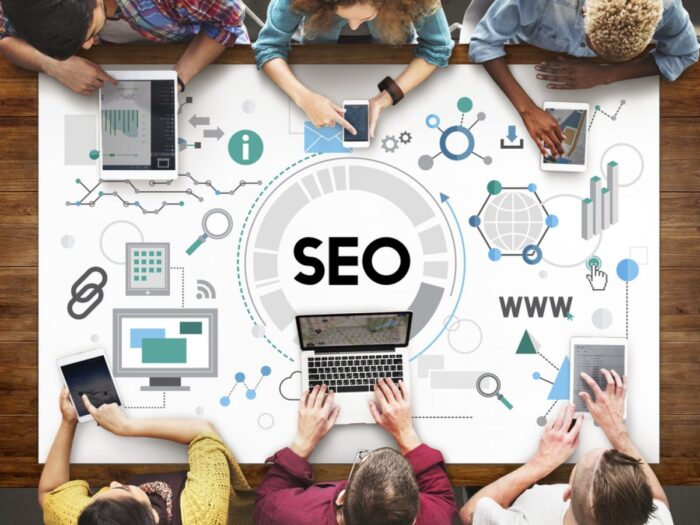
While there’s a ton of talk about the importance of SEO, many small business owners still don’t fully understand how it can impact their business. Does it actually help you rank higher in search engines?
And if so, how does that benefit your business? This article will cover the top ways SEO can impact your online business and why it’s an essential part of any successful business strategy.
What Is the True Impact of SEO?

While SEO has many benefits, the main goal is to increase your visibility in search engines. This is important because when people are searching for products or services online, they typically only look at the first few results that come up.
If you’re not ranking high in search engines, then you’re missing out on potential customers. With an effective strategy in the ever-changing digital transformation of business, you can expect the following impact:
1. Increases the Number of Conversions

One of the most critical ways SEO impacts your business is by increasing the number of conversions. A conversion is when a visitor to your website takes a desired action, such as making a purchase or signing up for a newsletter.
By ranking higher in search engines, you’ll get more traffic to your website. And with more traffic comes more opportunities for conversion.
In fact, businesses that use SEO see an average of 2.5x more conversions than businesses that don’t. So, if you’re looking to increase the number of customers that your business gets, then you need to focus on SEO.
2. Establishes Your Brand as an Expert in Your Industry
When you have an effective SEO strategy, you’ll typically create high-quality content that will not only answer your customer’s questions but also establish your brand as an expert. This will naturally help you rank higher in the search engines because your content will match what people want to know.
When you rank high in search engines, it helps establish your brand as an expert in your industry. This is because people tend to trust the results that come up first in search engines. If you’re able to position your business as an expert, it will build trust with potential customers and make them more likely to do business with you.
3. Increases Organic Website Traffic

Organic website traffic is the traffic that comes to your website from search engines. This is in contrast to paid traffic, which is when you pay for ads to get people to visit your website.
One of the main goals of SEO is to increase organic website traffic. And this can have a significant impact on your business because it’s typically high-quality traffic. This is because people who find your website through search engines are typically looking for what you have to offer.
In contrast, paid traffic is often less targeted and can come from anywhere. So, while it can still be beneficial, it’s not as effective as organic traffic.
4. Improves the Number of Leads You Receive
In addition to increasing the number of conversions, SEO can also help you generate more leads. A lead is a potential customer that has shown interest in your product or service.
One of the best ways to generate leads is to create content that is designed to capture information from the reader. For example, you might create a landing page with a form that asks for the reader’s name and email address. Then, you can use this information to follow up with the lead and turn them into paying customers.
5. Improves Visibility of Your Brand Online

SEO can also help improve the visibility of your brand online. This is important because the more visible your brand is, the more likely people are to remember it. This is extremely important, even if you have a brick-and-mortar store because people are increasingly searching for products and services online.
If you have a strong SEO strategy, you’re more likely to show up in search engines when people search for the products or services you offer. This will help increase brand awareness and make it more likely that people will remember your business when they need what you offer.
6. Helps Attract Local Customers
Did you know 78% of people who search for something nearby on their smartphone visit a related business within a day? If you’re a local business, you need to make sure you’re visible in local search results.
Local SEO is a specialized form of SEO that is designed to help businesses rank higher in local search results. This is important because it can help you attract more local customers.
As reported by Digital Authority Partners, there are a few key things you need to do to optimize your website for Local SEO:
- You need to make sure your business is listed in online directories.
- You need to create content that is optimized for local keywords.
- You need to make sure your website is mobile-friendly.
7. Saves Money On Marketing

Investing in SEO can save you money on marketing in the long run. Once you rank high in search engines, you can get a steady stream of organic traffic. And as we mentioned before, organic traffic is typically high-quality traffic.
In contrast, paid traffic is often less targeted and can be more expensive. So, while it can still be beneficial, it’s not as effective as organic traffic.
Is SEO Worth It?
SEO is an important part of any online marketing strategy. It can help you increase traffic, leads, and conversions for your business. And while it does require some time and effort to implement, it can be well worth it in the long run.
If you’re looking to improve your online presence and get more customers, then you should definitely focus on SEO.
Conclusion
SEO is an important part of any digital marketing strategy. It can help you attract more visitors to your website, generate more leads, and improve your brand’s visibility online. If you’re not already using SEO techniques in your marketing, then you’re missing out on a valuable opportunity to reach your target audience.














